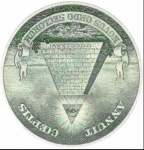Did the Sheol, the Jewish land of the Dead, Exist? Should Christians believe in it?
+ The Original Jewish After-Life Called the Sheol +
According to 1st century Jewish beliefs, the dead were gathered into a general tarrying-place, the Sheol of the Old Testament, and the Hades of the New Testament writings. Here, the righteous occupied an abode or compartment of their own which was distinctly separated by a wall or a chasm from the abode or compartment to which the wicked were consigned. The latter was a place of torments usually spoken of as Gehenna- the other, a place of bliss and security known under the names of "Paradise" (Luke 23:43) or "the Bosom of Abraham" (Luke 16:22-23).
- Wikipedia, Bosom of Abraham
In both the New American Standard Edition, as well as the New Standard Revised Edition of the Bible, the word Sheol is used every single time it is used in the original Hebrew text. This means both these top-notch English translations are guaranteed to provide some coherent meaning to the age-old Jewish doctrine concerning the Sheol. No longer will the reader become deliberately confused with yet another creative new term for this ancient Hebrew word. In fact, these two sets of Scriptures helps to ensure the full meaning of Sheol will not be corrupted with arbitrary replacements such as 'pit', 'hell', 'realm of death', or even worse, 'grave'. This predictable and theologically sound method of translating the same exact Biblical concept into the word Sheol at least fifty-five different times is commendable and will allow both texts continued publishing success. Long gone are the bad, old days when biased Biblical scholars would suddenly come up with even more meaningless English terms to replace this singular Hebrew term- namely the underground Jewish world of the dead known as the Sheol.
Now, as a way to emphasize the age-old Hebrew tradition which this particular word represents, a list of definitions has been assembled below. This set of references absolutely proves there should be no more debate about this issue. The Sheol is nothing more, and nothing less, than the proper designation for the Jewish land, or kingdom, of the deceased- a spiritual realm of the dead which has been a key theological aspect of Judaism since the Bible was first written. Seen as it is, the Torah provides literal proof in the existence of an after-life when read correctly. Yes, there may continue to be some Christian scholars out there who will go on denying that this is the case, but they stand against a wall of dictionaries and encyclopedias proving them wrong once again. Put bluntly, these definitions clearly show that Judaism has always believed in an afterlife and in the continued existence of every individual's soul (or ghost) after death. The pertinent list of references can be seen as follows:
+ Sheol, the Jewish Land of the Dead +
============================
Sheol /shēôl; shēōl/: The Hebrew underworld, abode of the dead.
- Oxford Pocket Dictionary of Current English
Sheol: The dwelling place of the dead in Jewish thought. Mention is made in the Bible of the dead going down to Sheol. It was neither heaven nor hell, but something like ‘the primitive grave’.
- Concise Oxford Dictionary of World Religion
Sheol: the Hebrew underworld, abode of the dead, envisaged as a subterranean region clothed in thick darkness, return from which was impossible. In the Authorized Version, it was translated variously as ‘hell’, ‘grave’, or ‘pit’.
- Oxford Dictionary of Phrase and Fable
Sheol: Hebrew term for the lower parts of the earth or underworld to which the departed were thought to be consigned (Proverbs 9: 18). There they continued in gloomy insubstantiality (Sirach 17: 27-8) which was foreshadowed by the deep depressions in present existence. Therefore restoration to health and vitality was a cause of thankfulness to the Lord (Psalms 30: 3).
- Dictionary of the Bible
Sheol: In the Old Testament, the underworld, the place of departed souls. It is translated in the AV variously as ‘hell’, ‘grave’ or ‘pit’; more recent translations usually leave it untranslated as a proper noun. The notion reflects an undeveloped and shadowy belief in the future life which was superseded by more defined beliefs of later Judaism.
- Concise Oxford Dictionary of the Christian Church
|
I think that whether or not it exists depends upon whether or not you believe it exists; if you believe that it exists then for you it can - in your mind. Until you die, though, I don't think you'll be able to truly find out , and when it gets to the stage where you are dead it is too late. There is not logical proof that it does exist: there has been no scientific evidence of where you go after you die, no indisputable message from God that it exists, no ghosts explaining it all on a David Attenborough documentary. Nothing. Therefore we will never know whether or not Sheol exists or not until we die. Should Christians believe in it? That depends upon the certain individual themself. There may be some who do, and some who don't. Saying that they either should or shouldn't is just the same as saying what someone should believe - just like Hitler did along with people on Crusades and almost every other war or argument related to religion. - I therefore conclude: 1) We probably won't know, unless we receive a message, whether or not Sheol exists. 2) A Christian, or anyone who supports any other relgion, can believe what they wish. |


